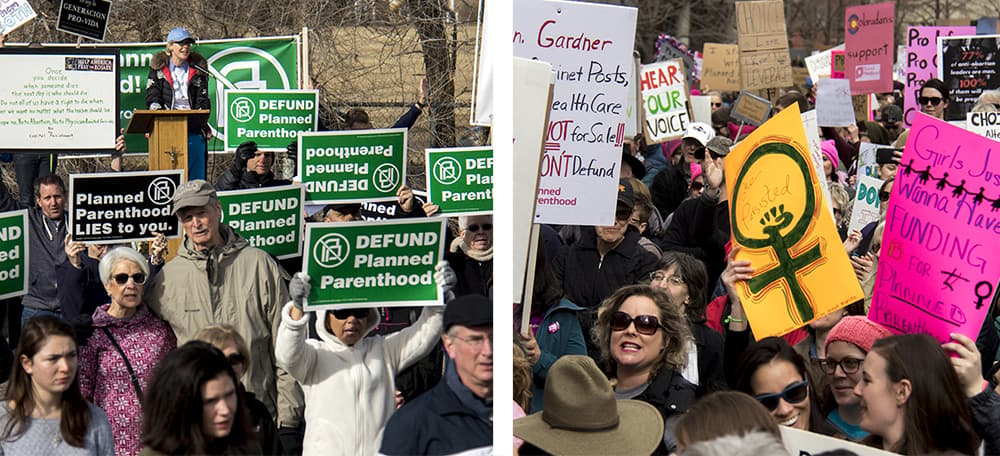
This was the second time in Mike Pence's young vice presidency that he's had to break a tie in the Senate. This time, he was voting to revoke an Obama administration rule that protected federal family planning money -- Title X funds -- for Planned Parenthood.
Many people reported this as a vote to "defund" Planned Parenthood. That's not quite accurate, but the move does make it easier to withhold Title X funding. This is money that goes out to the states for free and low-cost family planning services and that states give to various entities, including Planned Parenthood, to provide those services to low-income women. It doesn't cover abortion, but a number of states had moved to withhold Title X funds from organizations that also perform abortions. The rule had said that states can't set stricter standards and discriminate against providers that meet federal standards.
So how does this effect Colorado? Not at all, at least not directly, because Republican Gov. Bill Owens removed the state portion of Title X funding from Planned Parenthood clinics here in 2001. That money now goes mostly to county public health clinics.
"For us it's a symbolic move," said Whitney Phillips, a spokeswoman for Planned Parenthood of the Rocky Mountains. "They are not giving up. They are going to keep coming after women's access to care."
Planned Parenthood of the Rocky Mountains includes clinics in Colorado, New Mexico, Wyoming and Las Vegas. The only Title X money that any of these facilities receive is a modest grant to perform vasectomies in New Mexico, Phillips said.
But in some states, Title X is a major source of funding for Planned Parenthood, and Planned Parenthood might be one of the only providers of family planning services in a county or region. Or it might provide more convenience -- longer hours, same-day insertion of IUDs, on-site pharmacies -- than other options, said Janel George, director of federal reproductive rights and health with the National Women's Law Center.
George believes federal law made it illegal to discriminate against Planned Parenthood as a provider even before the Obama rule and that that continues to be the case. She also believes it remains the federal government's role to enforce its own laws. Nonetheless, the burden probably falls more heavily on advocates now.
"The vote was about emboldening states to discriminate and violate federal law," she said. "I believe this vote is aligned with an ideology that seeks to discriminate against Title X recipients and that is contrary to federal law."
When people talk about "defunding" Planned Parenthood -- whether they are for it or against it -- they are talking about two things: the Title X money that was the subject of Thursday's vote and Planned Parenthood getting reimbursed for non-abortion services provided to Medicaid recipients.
The legislation to change the Affordable Care Act that failed to come up for a vote last week would have made Planned Parenthood ineligible for Medicaid reimbursement. That would have been a big deal here. Medicaid recipients account for about 35 percent of Planned Parenthood's patients in Colorado. That's roughly 25,000 people.
The ACA repeal is on hold for now, and removing Medicaid funding from Planned Parenthood would be a harder sell as a stand-alone bill. Nonetheless, Phillips said advocates expect Republicans to keep looking for ways to remove funding.
Pence's vote was necessary because Republican Sens. Susan Collins of Maine and Lisa Murkowski of Alaska voted with the Democrats. Colorado's Republican U.S. Sen. Cory Gardner voted with his party to revoke the rule. Democratic U.S. Sen. Michael Bennet voted no.













